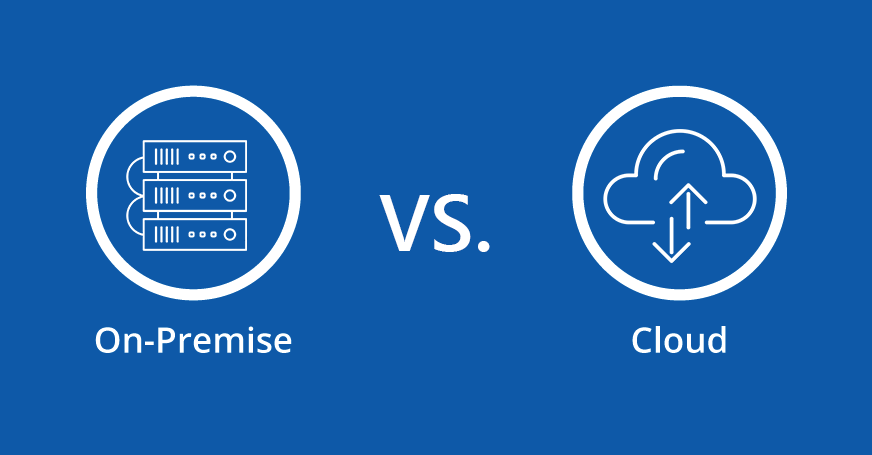Difference between on premise and cloud based CRM

Choosing to invest in a customer relationship management (CRM) solution is a crucial step for any business. Before making a decision, it's essential to determine whether a cloud-based or on-premise CRM would best suit your needs.
At SuperCRM, we offer both cloud-based and on-premise CRM solutions, catering to a wide range of business requirements. Here, we'll discuss the benefits and drawbacks of each to help you make an informed choice.
What is an On-Premise CRM?
An on-premise CRM, or on-site CRM, is hosted on your company's servers, meaning all infrastructure, hardware, and data are managed internally. Here are some key characteristics:
- Internal Management: Your IT department or designated team is responsible for system maintenance, including updates, backups, and security.
- Full Customization: Enjoy complete control over your system's features and capabilities, tailoring them to your specific needs.
- Data Ownership: You have total control and ownership of the customer data stored on-site.
- Complex Implementation: Setting up on-premise CRM solutions requires significant time and effort, involving dedicated CRM servers.
- High Upfront Costs: Initial investments include software licenses, hardware, and training.
When is an On-Premise CRM Suitable?
While cloud CRMs are increasingly popular, on-premise systems offer unique advantages in certain situations:
- Military and Government Agencies: On-premise CRMs are ideal for organizations that handle classified information, as they provide complete data control.
- Weak Internet Infrastructure: In areas with unreliable internet connectivity, on-premise CRMs ensure stable performance, critical for sectors like offshore oil and gas exploration.
- Proprietary Software and Legacy Systems: On-premise solutions offer seamless integration with existing infrastructure and applications.
- Specialized Budgeting Requirements: Companies preferring a one-time investment over ongoing subscription fees may find on-premise CRMs financially appealing.
Challenges of On-Premise CRMs
Despite their benefits, on-premise CRMs come with challenges:
- High Costs: Significant initial investments are required for software, hardware, and infrastructure.
- IT Resource Demands: Installation, configuration, and maintenance require substantial IT expertise.
- Limited Accessibility: Typically accessible only from devices on the same network, limiting remote work capabilities.
- Risk of Data Loss: On-site data storage increases vulnerability to hardware failures, power outages, and natural disasters.
Why a Cloud-Based CRM is an Excellent Fit for Growing Businesses
Cloud-based CRMs, hosted on external servers and accessed via the internet, offer flexibility, scalability, and reduced IT costs. Here's why they are often preferred:
- Scalability and Flexibility: Cloud CRMs provide multiple pricing tiers and customization options, allowing you to scale usage as your business grows.
- On-the-Go Productivity: Accessible from anywhere with an internet connection, cloud CRMs are perfect for businesses with remote teams.
- Access to Upgrades: Cloud providers regularly update their systems, enhancing functionality, user experience, and security without disrupting service.
- Fast, Accessible Support: Cloud CRMs offer extensive support through community forums, FAQs, and dedicated customer service channels.
- Simple Connectivity: Integration with third-party programs enhances productivity and streamlines business processes.
On-Premise vs. Cloud CRM: A Side-by-Side Comparison
| Feature | On-Premise CRM | Cloud CRM |
|---|---|---|
| Cost | High upfront costs, no monthly fees | Ongoing subscription fees, lower initial cost |
| Integrations | Custom integrations require IT specialists | Extensive library of third-party integrations |
| Customization | Full control, high customization potential | Custom fields, dashboards, APIs for bespoke apps |
| Support | Requires specialized internal or contracted support | Comprehensive provider and community support |
| Accessibility | Limited to local network | Accessible from anywhere via desktop or mobile |
| Upgrades | Manual updates by IT teams | Automatic updates by providers |
Final Thoughts
If your company's needs align with the benefits of an on-premise CRM, it can be a valuable investment, offering extensive control and customization. However, for most businesses, cloud-based CRMs provide a more affordable and flexible solution, enhancing productivity and accessibility.
At SuperCRM, we offer both options with extensive customization features, ensuring you get the best of both worlds. Contact us to find the perfect CRM solution tailored to your business needs.


